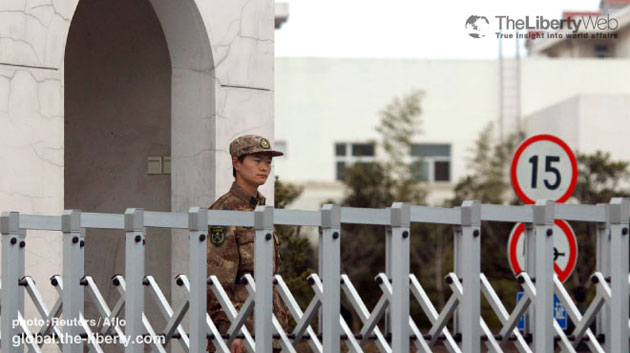Chinese Military Were Found To Be Involved in U.S. Cyber Attacks
The Sino-U.S. Rivalry Intensifies under the Surface
A U.S. computer security company, Mandiant, discovered that a unit of the People’s Liberation Army (PLA) of China has been committing cyber attacks against U.S. corporations since 2006. Mandiant revealed its evidence in a report published on February 19th. According to the facts, hacker groups, which have been cooperating with the PLA, have been stealing data from 141 corporations for the past seven years.
The report became public when several U.S. media outlets, one such was The New York Times, announced that they’d been the target of hackers. Mandiant’s statement pointed out that one of the targets of a series of Chinese cyber attacks was a company that has access to the pipeline system for natural gas. Those cyber threats might have had the potential to endanger the U.S. domestic energy supply.
In President Obama’s State of the Union Address, delivered on February 12th, he said, “Now our enemies are also seeking the ability to sabotage our power grid, our financial institutions, and our air traffic control systems.” As a countermeasure, President Obama signed an executive order that strengthened the information sharing capabilities of the U.S. government with regard to its domestic Internet service providers. The Obama administration also planned to consider the creation of new rules of engagement for cyber space, which could enable the Office of the President to authorize preemptive cyber attacks when threat levels heighten.
Cyber attacks from China have been increasing drastically. According to Akamai Technologies, a network company, most of the web traffic, dedicated to cyber attacks, came from China in the third quarter of last year. The share of China’s cyber attack traffic doubled from 16% in the second quarter to 33 % in the third.
In addition to attacks from overseas, there were Trojan-horse-style infiltrations into various networks on American soil. The U.S. House of Representatives designated Huawei and ZTE, both Chinese network equipment companies, as threats to national security last year. The reason for the classification of those businesses was that Chinese intelligence agencies might possess the ability to intercept U.S. digital communications through the products of those corporations. Huawei, whose CEO served in a previous capacity with the PLA, was an especially dangerous enterprise; evidence existed that proved the company had provided service to cyber warfare units of the PLA.
People still widely believe that China doesn’t possess sufficient military capabilities to challenge the U.S. directly, despite the fact that the Asian power has been attempting to gain dominance over the Western Pacific and expel the U.S. from the region. However, China was the country that gave birth to the philosophy of Sun Tzu, an ancient military strategist who said, “to subdue the enemy without fighting is the acme of skill.” China has been responsible for a quiet operation to undermine U.S. power from cyber space while it has been avoiding direct military confrontation. Without a doubt, the Sino-U.S. rivalry has been exacerbated as a result of these findings, no matter how ardently the white doves have been playing up the weight of the Sino-U.S. colloquy.



















